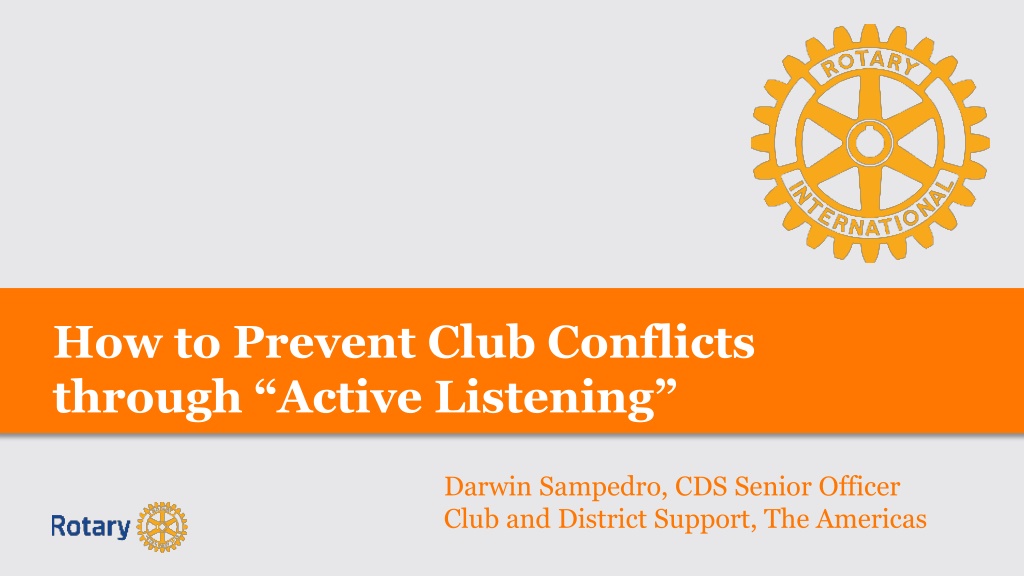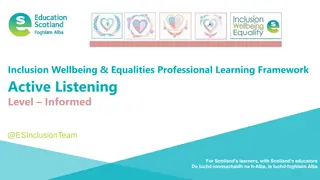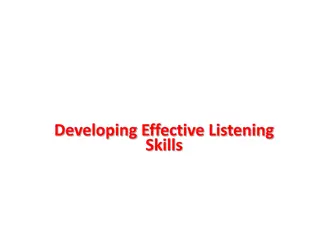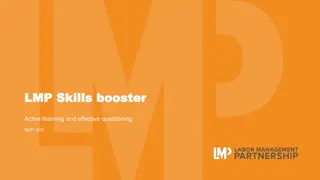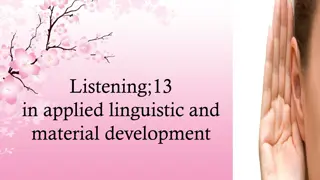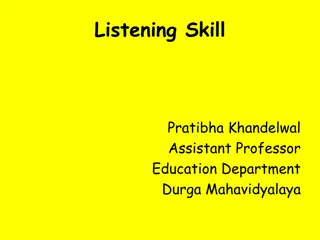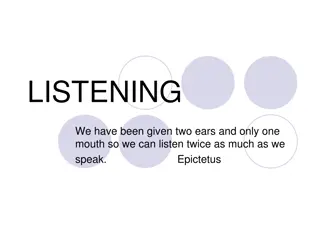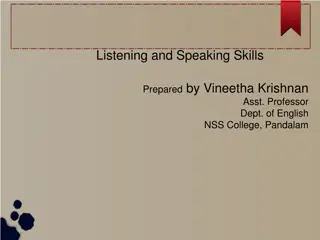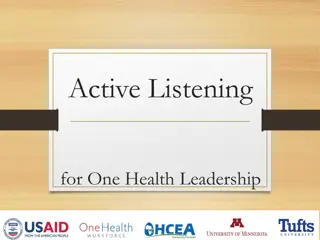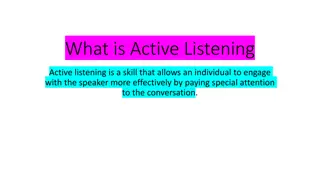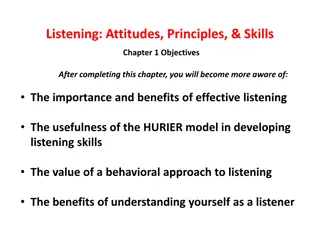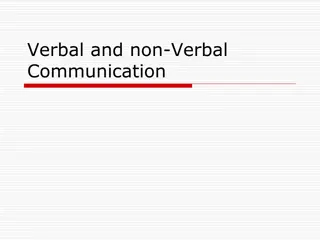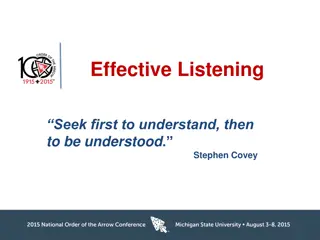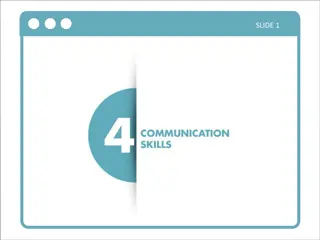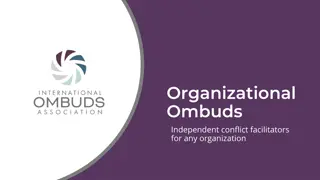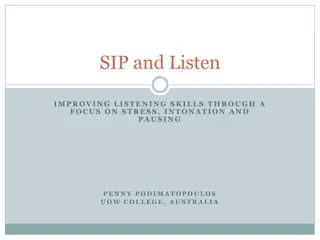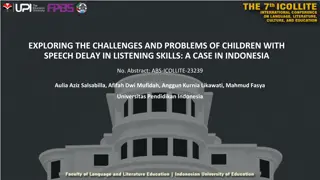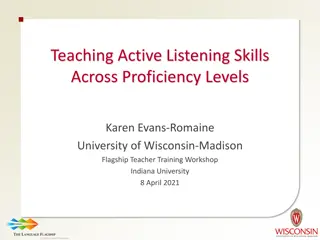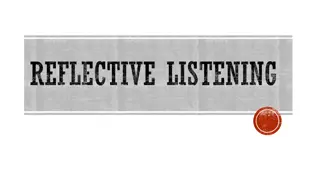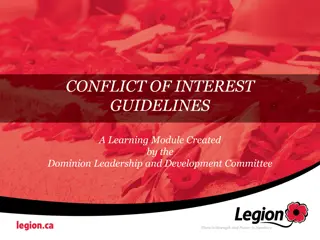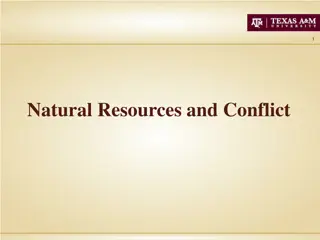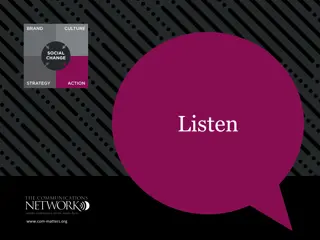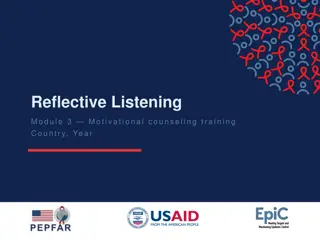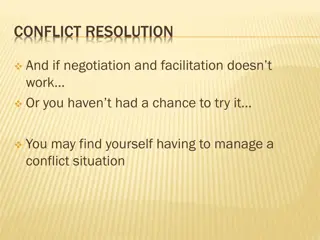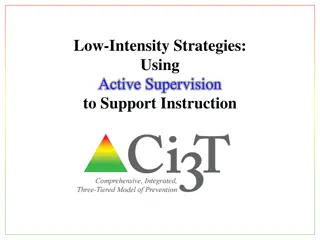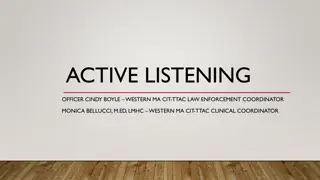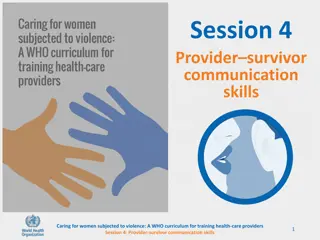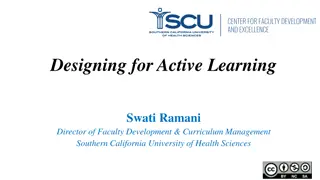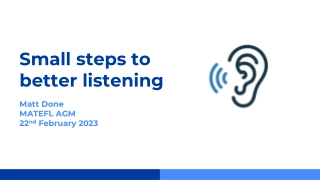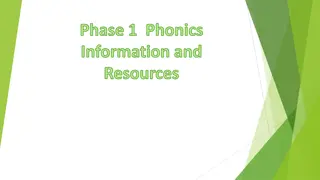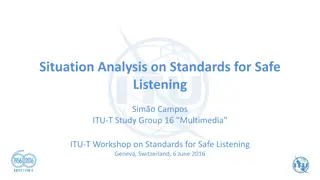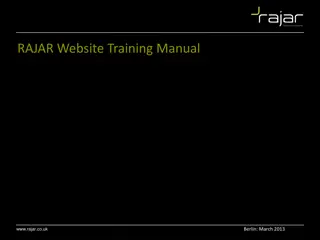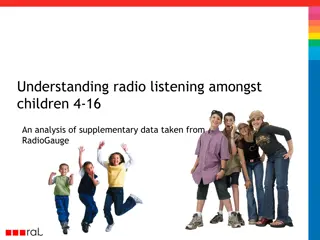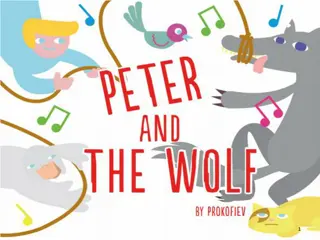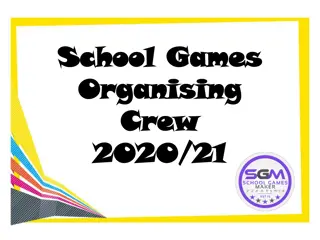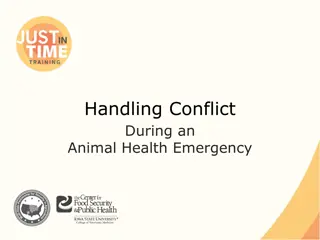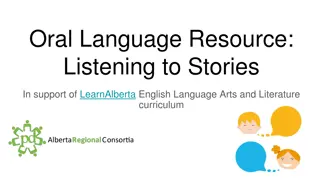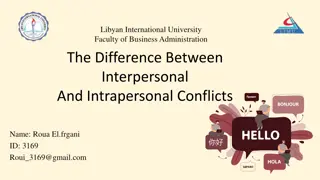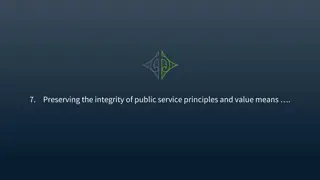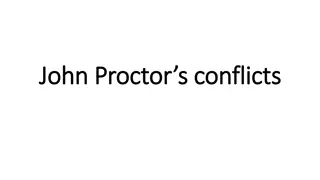Preventing Club Conflicts Through Active Listening
Learn how to prevent and manage conflicts within clubs by practicing active listening techniques. Understand the importance of resolving conflicts effectively for better club dynamics and member satisfaction. Gain insights on conflict resolution strategies and the impact of poor listening skills on club relationships and membership retention.
Download Presentation

Please find below an Image/Link to download the presentation.
The content on the website is provided AS IS for your information and personal use only. It may not be sold, licensed, or shared on other websites without obtaining consent from the author. Download presentation by click this link. If you encounter any issues during the download, it is possible that the publisher has removed the file from their server.
E N D
Presentation Transcript
How to Prevent Club Conflicts through Active Listening Darwin Sampedro, CDS Senior Officer Club and District Support, The Americas
OBJECTIVES What is conflict? Poor Listening vs. Active Listening Exercise: Are you a good listener? Solving club conflicts through Active Listening 2
Conflicts happen and are part of life, how we handle them, makes a difference. 3
Conflict 4
Conflict According to collinsdictionary.com: Conflict is serious disagreement and argument about something important between two or more individuals. 5
Conflict FOR MORE THAN 30 YEARS, OUR MEMBERSHIP HAS NOT GROWN FROM: 1,200,000 Rotarians What is happening? 6
Conflict 7
Conflict Participation 72% of current rotary club members 20% of proposed rotary club members 8% of former rotary club members 65% Male 34% Female 8
Conflict 52%of current members WOULD RECOMMEND their family members, friends and relatives join their Rotary club. 9
Conflict 46%of former members WOULD NOT RECOMMEND anyone join Rotary 10
Conflict Of all the reasons why a member ended their membership with Rotary, the main one was: 52%of former members Personality conflicts 11
Conflict 12
Poor Listening vs. Active Listening The Price of Poor Listening 14
Our worst enemy in communication is that we do not listen to understand, we listen to respond. -Pilar Morey Bulbena 15
Poor Listening vs. Active Listening In the business industry: Assumptions Misunderstandings Errors Ineffective decisions and/or costly mistakes 16
Poor Listening vs. Active Listening On a personal level: Hurt feelings Deteriorates trust Weakens communication even further 17
Poor Listening vs. Active Listening Aggrieved member: Becomes disinterested Becomes negative Takes a leave of absence Joins another Rotary Club Resigns from Rotary 18
Poor Listening vs. Active Listening Active Listening 19
What is Active Listening? 1. It is a way of listening and responding to another person that improves mutual understanding. 20
What is Active Listening? 2. It s an important first step in defusing situations or finding solutions to problems. 21
What is Active Listening? 3. This requires the listener to fully concentrate, understand, respond and remember what has been said. 22
What is Active Listening? 4. You make a conscious effort to hear and understand the complete message being spoken rather than just passively listening. 23
Active Listening Rules: 1. Listen and take notes 2. Answer questions 25
Active Listening Exercise Answers 1. YOUR NAME 2. 9 3. 12 TWO CENT STAMPS 4. ALL 12 MONTHS 5. NOWHERE 31
Active Listening What can we learn from this exercise? Focus on details Listening vs. problem-solving Receiver bias Avoid distractions Asking relevant questions 32
5 Key Active Listening Skills 1. Pay Attention 34
5 Key Active Listening Skills 2. Show that you are listening 35
5 Key Active Listening Skills 3. Provide Feedback 36
5 Key Active Listening Skills 4. Defer Judgement 37
5 Key Active Listening Skills 5. Respond Appropriately 38
Benefits of Handling Club Conflicts Effectively Retention of members Better club atmosphere Mutual respect between members Increase focus on club projects, membership and goals! 39
Conclusion 40
Conclusion Rotary s active listening is what we do best Through active listening we change people s lives Respond to world challenges Rotary Creates HOPE in the world
Conclusion Use Active Listening Skills to effectively prevent any club conflict. 42
